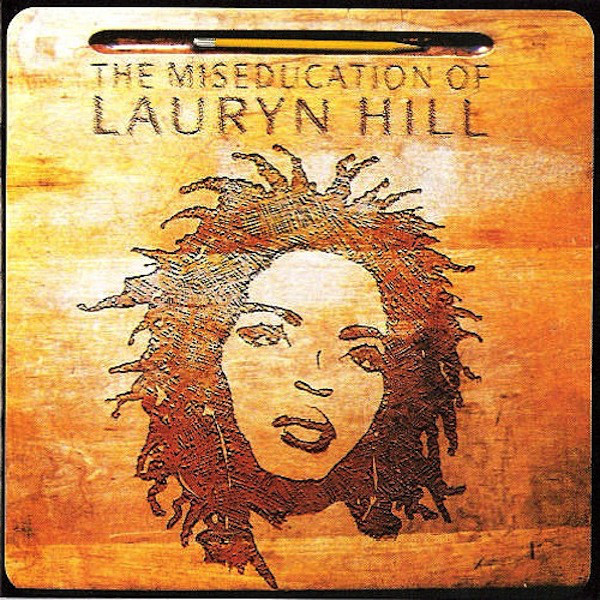Now Playing
Current DJ: Joanna Bz
Alabama Shakes Don't Wanna Fight from Sound & Color (ATO) Add to Collection
Requests? 773-DJ-SONGS or .(JavaScript must be enabled to view this email address)
 written by Joshua Friedberg
written by Joshua Friedberg
At Pitchfork this week, Lauryn Hill is expected to give an electric performance of her one solo album, The Miseducation of Lauryn Hill. With the album celebrating its twentieth anniversary, it’s a good time to revisit its success and its meaning to listeners, including me.
Lauryn Hill’s 1998 disc proved to be an instant classic. I remember at ten years old, I heard about this album garnering the kind of critical and industry acclaim that Nirvana’s Nevermind received several years earlier. And though today it appears to have lost some of its critical luster compared to Nevermind and Radiohead’s OK Computer—which today are both in the statistical aggregate acclaimedmusic.net’s list of the top 10 most acclaimed albums of all time, while Miseducation sits at a “measly” #131—it continues to hold a special place in the hearts of fans of many different generations, genders, races, and classes.
Hill first came to fame as a member of the Fugees, whose 1996 album The Score became a megahit based largely on the Hill-led cover of Roberta Flack’s “Killing Me Softly with His Song.” The Fugees were a rap group, but Hill’s talent as both rapper and singer quickly outgrew the admittedly skilled trio. When Hill released The Miseducation of Lauryn Hill at age 23, expectations were high, and two years later, VH1’s poll ranked Hill’s album at #37 of the 100 Greatest Albums of Rock 'N’ Roll. Last year, NPR’s music blog ranked Miseducation the #2 album by a woman since 1964 (#1 was Joni Mitchell’s confessional singer-songwriter masterpiece, Blue, to which Miseducation has been compared).
With accolades like these from critics and five Grammy awards in one night—then a record for a female artist—one could be forgiven for being disappointed in such a heavily hyped work of art. However, part of my initial letdown upon hearing the entirety of Miseducation was simply my not paying enough attention to the lyrics, music, and beats. And to be fair, some parts of Miseducation—the vulnerable, gorgeous, and gut-wrenching “Ex-Factor” and her buoyant celebration of her newborn son on “To Zion,” featuring Carlos Santana on guitar—are more immediately accessible to my singer-songwriter- and soul music-bred tastes used to expressive emotion in music, but listening to the album today, I can appreciate the “sleeper” tracks as quite strong.
The album follows Hill on a journey of self-discovery from bitterness (“Lost Ones”) to self-acceptance (the title track) and beyond, and Hill ingeniously contrasts her learning to love herself to those of a classroom learning about love, for which she is absent. Those skits of the classroom are indeed quite funny (as one dramatic student says, “Well, love is just a feelin’ . . .”), and though I initially viewed them as filler, they add a lot to the album’s overall atmosphere.
Hill’s lyrics are by turns caustic, clever, and warm, and the hit single “Doo Wop (That Thing)” exemplifies this approach: while chastising women and men, such memorable lines as, “You know I only say it ‘cause I’m truly genuine/ Don’t be a hard rock when you really are a gem” fit all three qualities and feel like they’re spoken from a few decades of strong observation, rather than from a 23-year-old.
The book 1,001 Albums You Must Hear Before You Die, edited by Robert Dimery, calls songs like “Lost Ones” and “Final Hour” “Fugees-style hip hop,” but I hear these tracks as more aggressive than the more fun rhymes on the Fugees’ “Ready or Not” or “How Many Mics” (though the Fugees did get overtly political on “The Beast”). And the other collaborations, with Mary J. Blige and D’Angelo, balance the confessional with the wise, especially “I Used to Love Him” with Blige.
Still, it took me a while to appreciate a lot of the album’s middle, specifically tracks 6-12. With more patience and ability to actually listen (rather than hearing it in the background), I appreciate the confessional qualities of “When It Hurts So Bad,” the mercy in “Forgive Them Father,” and the effervescent nostalgia in “Every Ghetto, Every City.” So, dare I say, I think that critics were right when this album came out: this album is a masterpiece, whether or not every track is equally strong.
And its impact over time has been substantial, though perhaps less so than predicted because of Hill’s relative disappearance. Hill paved the way for female emcees like Nicki Minaj to enjoy significant mainstream success, though her own limited output since—a live album and a few tracks on a Nina Simone tribute album—has, for many fans, left much to be desired. But Miseducation stands as one of the ‘90s’ most ambitious and successful renderings of a young artist’s artistic vision blossoming to fruition, and I can’t wait to hear how these songs hold up at Pitchfork this weekend.
Next entry: @CHIRPRadio (Week of July 16)
Previous entry: TONIGHT! ‘Urgh! A Music War” at The Music Box Theatre!